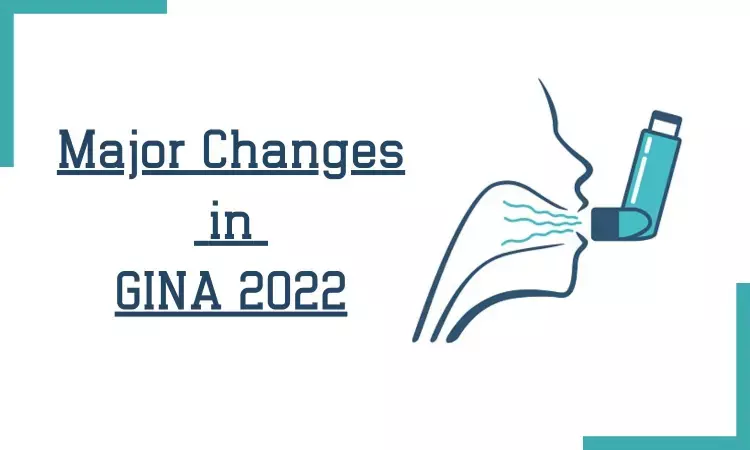- Home
- Medical news & Guidelines
- Anesthesiology
- Cardiology and CTVS
- Critical Care
- Dentistry
- Dermatology
- Diabetes and Endocrinology
- ENT
- Gastroenterology
- Medicine
- Nephrology
- Neurology
- Obstretics-Gynaecology
- Oncology
- Ophthalmology
- Orthopaedics
- Pediatrics-Neonatology
- Psychiatry
- Pulmonology
- Radiology
- Surgery
- Urology
- Laboratory Medicine
- Diet
- Nursing
- Paramedical
- Physiotherapy
- Health news
- Fact Check
- Bone Health Fact Check
- Brain Health Fact Check
- Cancer Related Fact Check
- Child Care Fact Check
- Dental and oral health fact check
- Diabetes and metabolic health fact check
- Diet and Nutrition Fact Check
- Eye and ENT Care Fact Check
- Fitness fact check
- Gut health fact check
- Heart health fact check
- Kidney health fact check
- Medical education fact check
- Men's health fact check
- Respiratory fact check
- Skin and hair care fact check
- Vaccine and Immunization fact check
- Women's health fact check
- AYUSH
- State News
- Andaman and Nicobar Islands
- Andhra Pradesh
- Arunachal Pradesh
- Assam
- Bihar
- Chandigarh
- Chattisgarh
- Dadra and Nagar Haveli
- Daman and Diu
- Delhi
- Goa
- Gujarat
- Haryana
- Himachal Pradesh
- Jammu & Kashmir
- Jharkhand
- Karnataka
- Kerala
- Ladakh
- Lakshadweep
- Madhya Pradesh
- Maharashtra
- Manipur
- Meghalaya
- Mizoram
- Nagaland
- Odisha
- Puducherry
- Punjab
- Rajasthan
- Sikkim
- Tamil Nadu
- Telangana
- Tripura
- Uttar Pradesh
- Uttrakhand
- West Bengal
- Medical Education
- Industry
New guidelines on asthma management by global Initiative for Asthma 2022- Major recommendations

The Global Initiative for Asthma (GINA) has published new guidelines for managing asthma in consonance with the current practice of offering "living guidelines."
Drafted by a team of GINA Boards of Directors and Science Committee, the revised guidelines are intended to give clinicians evidence-based guidance about new and existing medicines and their roles in the overall management of asthma. This guideline replaced the 2019 GINA.
The GINA 2022 recommends against the monotherapy of long-acting muscarinic antagonists (LAMA) (without inhaled corticosteroids) in asthma.
The guideline further observed that this change in recommendation had been made due to the higher risk of severe exacerbations in patients receiving LAMA without any inhaled corticosteroids (ICS).
However, the guideline recommends the addition of LAMA to ICS LABA (long-acting beta agonists) for adults and adolescents. As per the evidence gathered from a meta-analysis of studies, adding LAMA to ICS-LABA confirmed an optimum increase in lung function and a modest overall reduction in severe exacerbations, albeit the clinically essential benefits for symptoms or quality of life were not observed.
At the same time, the evidence does not support adding LAMA for patients with persistent dyspnea. And it further recommends that patients with exacerbations despite ICS-LABA should receive at least a medium dose of ICS-LABA before considering adding on LAMA.
Chromone Pressurized Meter Dose Inhaler: As a consequence of their limited use in the management of asthma over the past few years, as well as their lack of effectiveness and ease of use compared to an inhaler, the GINA 2022 also recommends against the use of chromone pressurized meter dose inhaler globally.
The revised recommendation still calls for using ICS-formoterol on a regular basis as necessary. The recommendation also observed that ICS relived in patients receiving additional controller therapy and that more use considerably lowers the likelihood of severe exacerbations.
Additionally, the recommendations advise against using the word "mild asthma" in clinical practice because this term has a lower risk, despite the fact that 30% of asthma deaths occur in individuals with occasional symptoms. In light of this, the recommendation suggests that the term "mild asthma" be qualified by a warning about the possibility of severe exacerbations and the requirement for ICS-containing treatment.
According to the guidelines, patients with difficult-to-treat asthma and blood eosinophils were also advised to undergo Strongyloides testing before considering biological therapy.
Please refer to the guideline for details of updates: https://ginasthma.org/wp-content/uploads/2022/07/GINA-Main-Report-2022-FINAL-22-07-01-WMS.pdf
Dr Kamal Kant Kohli-MBBS, DTCD- a chest specialist with more than 30 years of practice and a flair for writing clinical articles, Dr Kamal Kant Kohli joined Medical Dialogues as a Chief Editor of Medical News. Besides writing articles, as an editor, he proofreads and verifies all the medical content published on Medical Dialogues including those coming from journals, studies,medical conferences,guidelines etc. Email: drkohli@medicaldialogues.in. Contact no. 011-43720751


